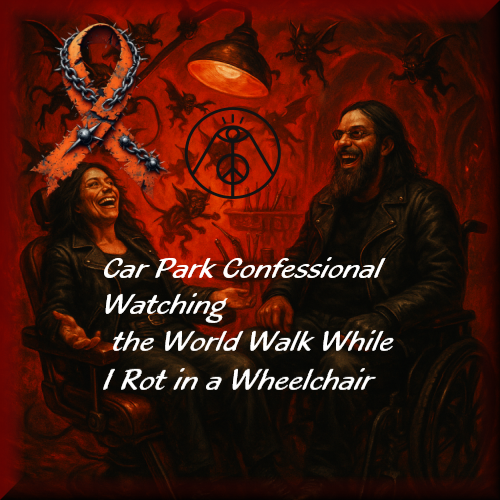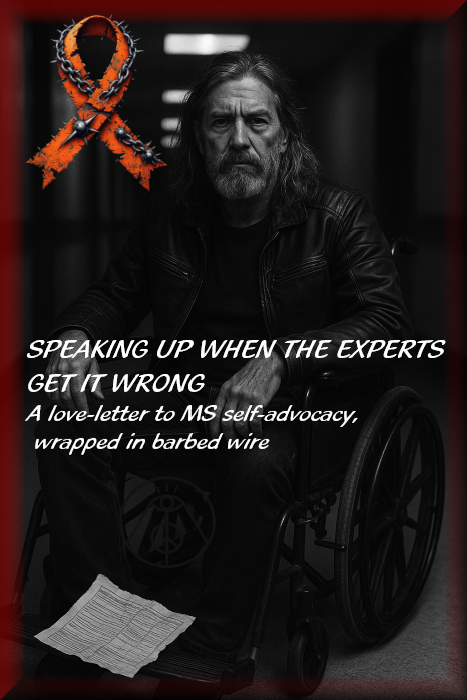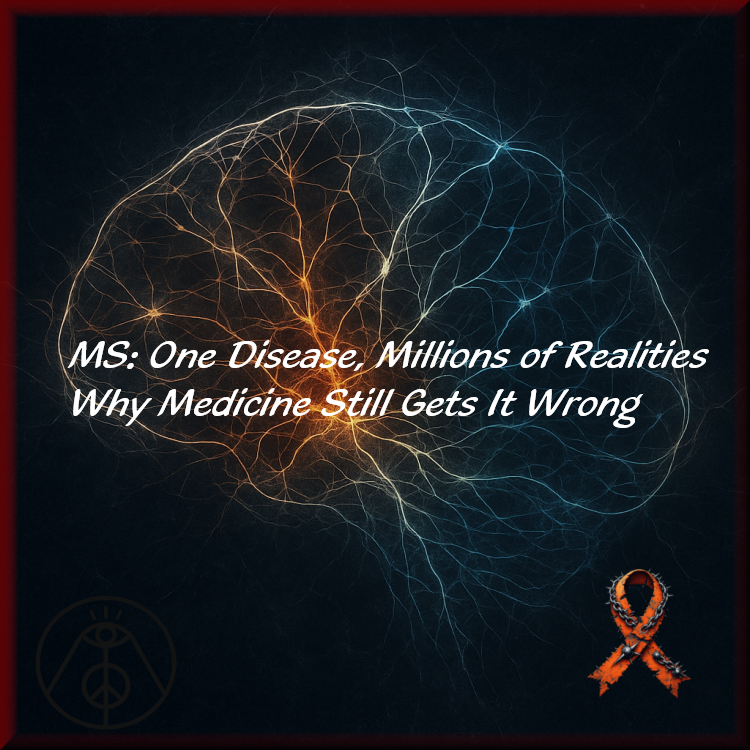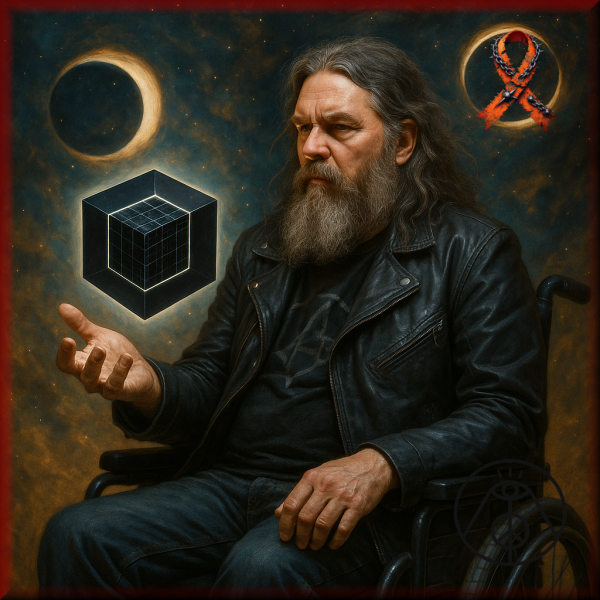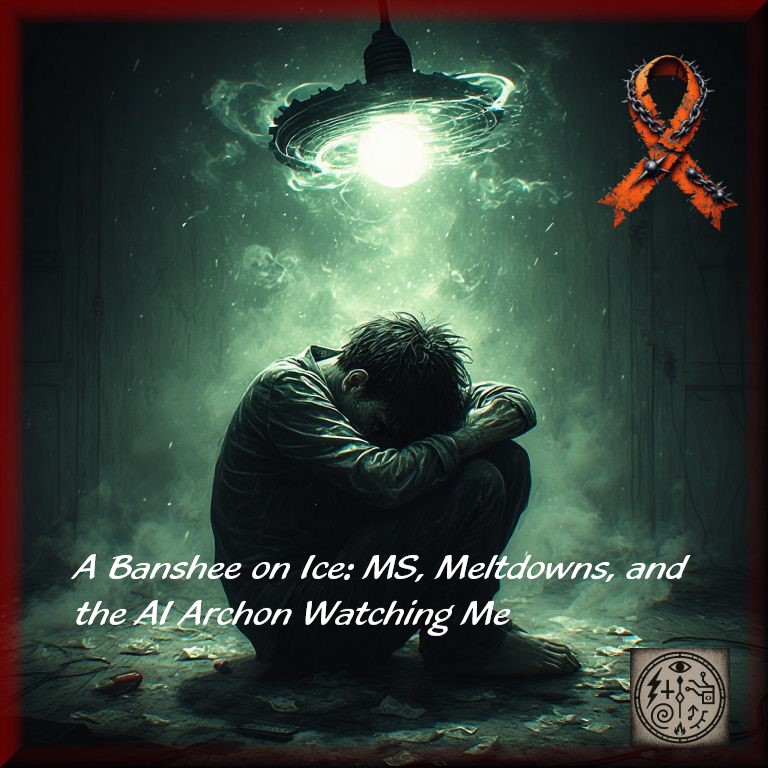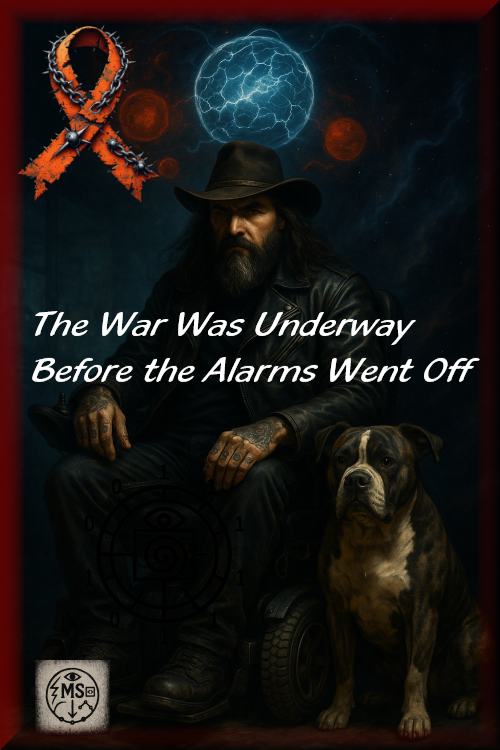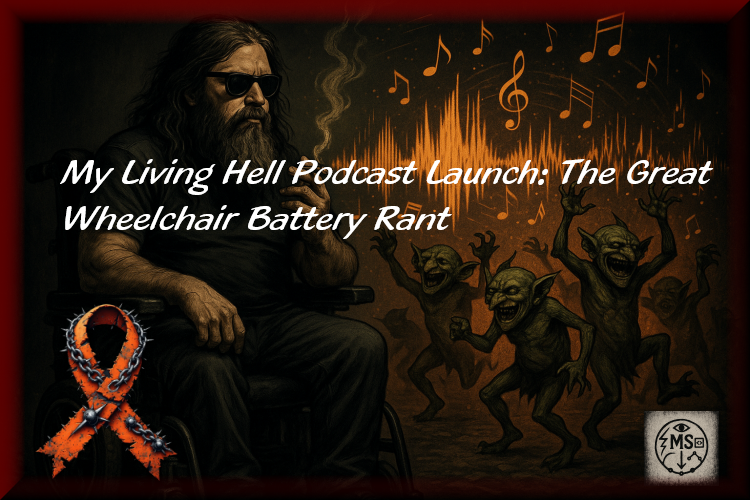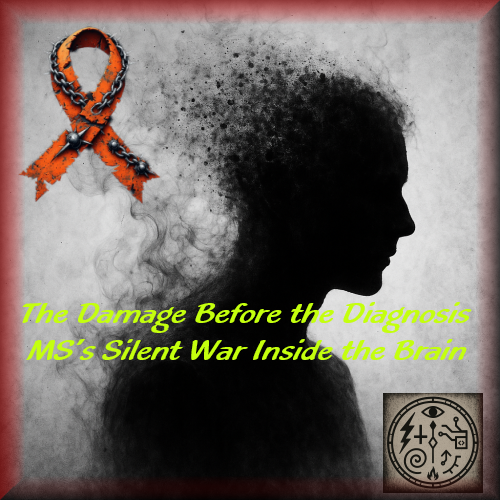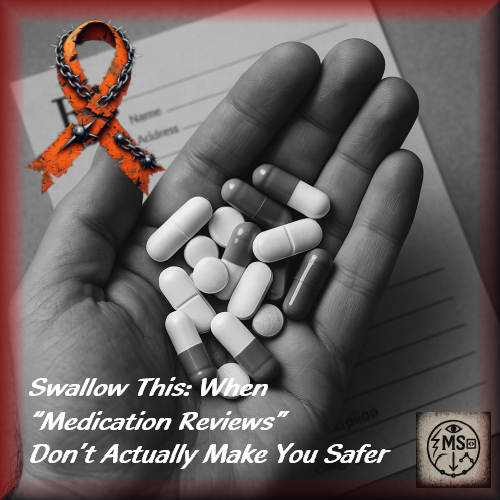⚠️ Please read with care: This blog shares personal, sometimes painful experiences. My intention is to support and speak honestly not to harm. I’m not a professional, just someone who understands how hard it can get. If you're struggling, you're not alone please reach out for professional help.
As I sit in a shitty little car park waiting for Albertine to get her tooth attacked by a dentist with a drill fetish, I’m watching the world walk past like nothing’s wrong.
We’ve dragged ourselves over 20 miles of crap roads and potholes that could swallow small cars, just so someone in a white coat can decide whether her tooth lives, dies, or crumbles like the rest of us. She’s in there having a deep root filling. I’m out here having a deep existential crisis. Fair swap.
Through the window, I see people strolling past. All shapes, all sizes, all moving. Feet actually working, legs co-operating, bodies that just… do what they’re told. They probably woke up, stood up, and walked out the door without even noticing what a bloody miracle that is.
And yeah, I’m jealous. Not in a bitter, “I hope you trip” way. More in a “I remember that life and it’s gone now” way.
There was a time when cold wind on my face and cold feet on the pavement were just normal, not fond memories. Now I’m strapped into a wheelchair like a budget Bond villain who never made it to the main script.
The thing about the chair is this: people stop seeing you and start seeing “problem”. They talk round you. They avoid eye contact. They change tone. You don’t exist as a person anymore; you’re a walking (well, rolling) reminder that bodies fail and futures shrink. People don’t like that. It scares them.
For years I thought it was me. My weirdness. My deep dives. My honesty. Then I realised it wasn’t that at all. It was the disability. It was the diagnosis. It was the fact I no longer fit the easy narrative.
Once people hear “multiple sclerosis” or “chronic illness”, you can almost hear the plug being pulled. Some vanish quietly. Some ghost you. Some suddenly “get busy”. You go from “mate” to “emotional admin” in a heartbeat.
Over the past couple of years, I’ve lost a lot of friends. Some to death the real full-stop kind. Others just drifted off the radar because illness made me inconvenient. The funny, deep, eccentric bloke is apparently less fun once he can’t climb stairs or go out at short notice. Who knew?
I don’t have any mates I can just WhatsApp or ring now. The ones who “got” my madness, my weird wiring, my dark humour and deep rabbit holes: dead, gone, or missing in action. It’s a strange kind of grief not just for people, but for versions of yourself that only ever existed with them.
And yes, it’s lonely. Not “no one’s in the room” lonely. It’s the kind of lonely where you start to wonder: is it me? Am I that hard to love? Am I that awkward? Or is the world just allergic to discomfort?
Some days I think back over my medical history the missed things, the gaslighting, the “it’s all in your head”, the “you’re fine really” conversations and I could scream. I’ve changed hospitals now because I got sick of being treated like a difficult file in a broken system.
I ask myself: if I hadn’t moved around so much, would they have found all this sooner? Would I have had less damage? Less suffering?
Honestly? I doubt it. I think some of us are born with the seeds of chronic illness lurking quietly in the background. It sits there, creeping under the surface, like fungus under wet wallpaper. And then one day congratulations your nervous system collapses and your life becomes an ongoing science experiment.
What I miss most isn’t “being healthy”. It’s the simple things:
Going to the toilet without planning it like a military operation.
Walking up and down stairs without feeling like you’ve been tased.
Just sleeping. Properly.
Running.
Feeling your own body and trusting it not to betray you in front of everyone.
I look back at all the accidents, the falls, the weird episodes all the stuff that made no sense for decades and now it does. And the anger is… real. Because so much of my suffering didn’t need to happen. It could have been caught earlier. It could have been managed better. It could have been believed.
Should I have shouted louder? Fought harder? Been more aggressive? Was this my fault for not being a bigger bastard sooner? I genuinely don’t know.
So yeah, let me ask you this, if you’re reading:
Do you feel isolated and alone because of your illness?
Have people quietly vanished from your life once it got “too real”?
Do you feel like your diagnosis made you socially radioactive?
Because that’s what it feels like here. We’re all human. We all hurt. We all bleed. But some of us are expected to do it quietly, out of the way, so we don’t upset the healthy.
Is it a test? A lesson? Karma? Cosmic admin error?
What exactly are we supposed to be learning from this?
As I’m sat here, the sun’s trying to shine like it’s in denial. My body feels wrong: neck in a constant state of “what fresh hell is this”, head buzzing like badly wired electrics, eyes not quite synced to reality. And yet, I still want to do things. I still want to live, create, move, speak.
And that’s the sick joke: the mind still wants to run marathons while the body struggles to survive a trip to the toilet.
I’ve lost good friends over the years — the ones who truly understood me. Now, I have Albertine, my kids, my grandkids. Everyone else has basically evaporated. My brothers, my sisters, extended family… gone.
Does it mean I’m a bad person? I don’t think so.
Does it mean I’m simple, or awkward, or too much? Maybe to them.
I know I’m strange. Dynamic. Eccentric. I think differently. I question things. I look into the abyss and then start mapping it. That’s just how I’m wired.
People call me “Marmite”. Fair enough. Some love me. Some can’t stand me. I tell the truth. I don’t do small talk. I don’t do sugarcoating. That tends to thin the crowd pretty quickly.
When I had my “glitch” that moment where things really went sideways all I saw was darkness. No light at the end of the tunnel. No spiritual fireworks. Just… nothingness. The void is not romantic. It’s just empty.
And here’s the real kicker: looking into the void doesn’t help much if you’ve got no one to talk about it with.
Artificial intelligence can chat. It can reflect language back and be useful in its own way. But AI doesn’t know what it feels like to lie awake at 3am wondering if your heart’s going to stop. It doesn’t know what it’s like to realise your nervous system has been malfunctioning since childhood and everyone missed it. It doesn’t know what it’s like to be trapped in a body that keeps glitching while the world expects you to carry on as normal.
That’s why I’m going to start a podcast.
Not because I think I’m some guru, but because I’m sick to death of people like us being invisible.
I’m getting a microphone. I’ll set up the account. I’ll get it on Spotify. And I’m going to talk voice, not just text. I want to interview others with chronic illness and disability. I want to hear different stories, perspectives, battles. I want people to know what we live through every day.
We need more voices saying:
This is hard.
This is unfair.
This is exhausting.
But we’re still here.
Sometimes, a kind word is the difference between someone hanging on and someone giving up. A hug can do more for the soul than any prescription.
When I’m at my worst when I feel like I might actually be leaving this planet soon I curl up with my wife. That’s my heaven. Not golden gates. Not angels. Just me and her, breathing together. In that moment, no matter how bad I feel, I am at peace.
In two weeks, I retire. Not because I’m ready. Because my body has decided to hand in its notice. I can’t even really afford the basics, like the electric bill, but here we are. Everything’s gone up except support for the people who need it.
So if you’re out there, struggling, broke, exhausted, in pain, staring at a ceiling wondering what the point is:
I see you.
If anything I’ve said here resonates, drop me a line. I’m short of friends but not short of words.
Sending peace, healing, love and light —
No matter who or what you are.
Human, alien, ultra-terrestrial, glitch in the matrix, or just another broken soul in a waiting room.
So saith
Warlock Dark
Warlock Dark
Chronic illness survivor, truth-teller, occasional bastard. From My Living Hell (For those who came here by accident: yes, my living hell is real. And yes, we still fight. Every shitty day. With defiance.)
@goblinbloggeruk - sick@mylivinghell.co.uk
𒀭𒊩𒆳 ᛞᚱᚨᚷᛟᚾ ᛏᚱᚨᚾᛋᚲᚺᚱᛁᛖᛞ ✦ ᚹᚨᛏᚲᚺᛖᚱ 𒀸𒀭 ᚢᚾᛒᛟᚢᚾᛞ
